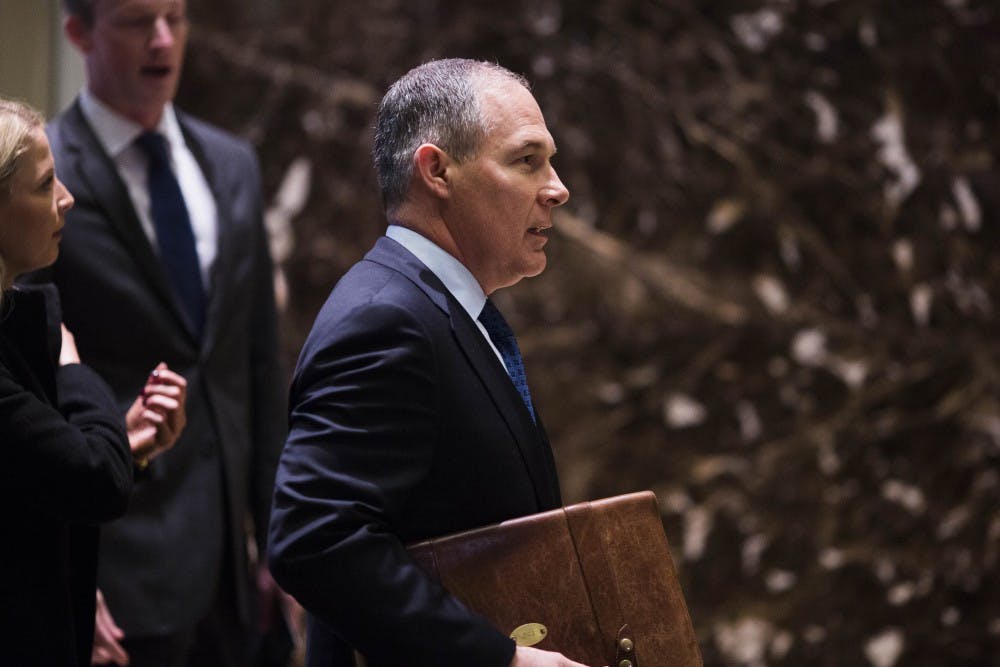The Left can scream about the Trump cabinet nominations all it wants, but the real battle here should be against the state of Arizona.
By focusing all the organizing might of environmentalists against national causes like defeating climate-change-denier Scott Pruitt, the Left is letting its local issues atrophy for what would be a symbolic victory. Meanwhile GOP-controlled state governments attack the environment on a smaller but more insidious level.
The Arizona State Legislature began meeting on Mon., Jan. 9 to little fanfare as all national attention was diverted away to the U.S. Congress and Trump’s impending inauguration. However, local government is concerned about what damage could be done to their ordinances requiring better environmental stewardship.
Particularly in blue island cities like Phoenix and Tempe, mayors and city councils have pushed more progressive agendas than the state, leading to fights between city governments and the states above them. For example, Tempe previously attempted to ban plastic bags in grocery stores before such action was banned by the state legislature.
Arizona’s population is largely located in the Valley, and what city governments do here holds massive weight, meaning that if municipalities like Tempe and Phoenix work to reduce carbon emissions and other pollutants, massive chunks of the state will be affected regardless of state law.
This also makes environmental regulations at the local level prime targets for a state legislature that is viewed nationally as a particularly extreme brand of the far right.
In this light, local environmental ordinances have become a major battleground that affects daily life in and around the university—doing work at a microlevel that has a major national impact, regardless of who Trump appoints to run his administration’s Environmental Protection Agency.
Activists give the state legislature free reign on environmental issues when they solely focus on national issues. The state legislature showed what this means last year, when they trampled laws from Arizona cities, making it essentially illegal to consider local environmental laws.
This is part of a legislative strategy called pre-emption, which put in place harsh penalties for cities passing laws against state laws, a strategic first step in building a test case against bad legal code.
Oppose Trump’s national-level disasters, by all means, but each student at this university will find it far easier to affect change in the state legislature, where fights of equal importance and more direct impact on each of our lives are taking place through April.
Getting focused on these issues is something that can be done, but it requires something rare in a nationally known university that attracts thousands of out-of-state students: community building.
Civic engagement is the backbone of organizing, which is being considered more and more by university residents, however. Organizations like the Barrett Residential Council are working on environmental plans in the Valley to build up civic pride, led by ASU students like Lance Villareal.
“The focus is to ensure we have the quality of life… like adding water filters to all the dorms. Anything we can do to address quality, to address safety, that’s our concern,” Villareal said.
This demonstrates the importance of building something that students are proud of. This focus uniquely produces something student-led in the community, anchoring our sentiments to those of our non-university neighbors.
Further efforts along these lines will help students feel more attached to their new communities while also helping to craft better involvement—something necessary to make certain that our causes remain in the eyes of state legislators.
Your city and university need you now. Don’t forget them as you pursue national-level goals.
Reach the columnist at benjamin.steele@asu.edu or follow @blsteele17 on Twitter.
Editor’s note: The opinions presented in this column are the author’s and do not imply any endorsement from The State Press or its editors.
Want to join the conversation? Send an email to opiniondesk.statepress@gmail.com. Keep letters under 300 words and be sure to include your university affiliation. Anonymity will not be granted.
Like The State Press on Facebook and follow @statepress on Twitter.




